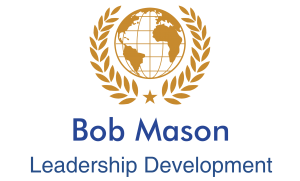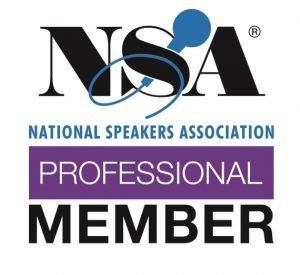The large conference room was quiet. As the new leader I was seated at the head of the table. Seated around the room were 35 other people, each of them an expert in their own area of responsibility and each a leader of their own team.
The organization was down. There had been some problems and moral was low. To complicate the situation even more, they did not liked my predecessor and even worse, had not trusted him. Looking around the room, I saw 35 people staring back at me with both anticipation and suspicion.
This was going to be a challenge.
The challenge was made a little easier by the leaders I’d had throughout my career; leaders who taught me the skills necessary to successfully lead this large team. More importantly, they were leaders who demonstrated three basic principles that are the foundation for success: understanding yourself and your values, understanding and clearly articulating your and your team’s purpose, and understanding and appreciating your people. These principles underlie every other skill a leader needs.
What are your values?
Everyone has values that shape what they do. Effective leaders know and live by those values. Have you ever defined your own values? If someone asked you to write a few words or phrases that describe your values what would you write? How would you describe those innermost beliefs that define why you do what you do?
The ability to list values is the first step, but do you really live by those values? When those inevitable ethical dilemmas occur, do those values still guide you? If you showed your list to some of your friends and co-workers, would they agree the list describes you?
Unfortunately, for some leaders, those values are only applicable when things are going smoothly. When they are overcome by events their team sees the values they profess to hold are not really the values they live by, which diminishes their effectiveness as a leader.
Some years ago, when I was a young Air Force maintenance officer, one of our squadrons was to participate in a high visibility navigation contest. This was before the days when GPS was a common navigational tool and what units were available were expensive and hand-held. The squadron’s commander had managed to acquire a hand held unit and was going to use it on the competing aircraft.
The problem was the contest rules specifically forbade the use of any GPS. His answer was that he was using it to tweak the INS system. He felt the contest rules did not prohibit that. Perhaps, but FAA regulations do address using uncertified devices in the cockpit (Air Force regulations have similar provisions). His answer to that was that no one would know.
From that point forward, even though he still professed to hold integrity as a personal value, his team knew better.
It’s essential for a leader to know themselves, clearly define their own values, and lead in a way that demonstrates those values.
What is your purpose?
The second basic leadership principle is understanding your purpose. A leader must have a clear vision for what they want to accomplish, a keen grasp of the mission, and well defined goals to accomplish that mission. I am constantly amazed at how many people cannot clearly define their purpose. It’s easy to say, “Yea, I know what I’m doing.” But do you really? Take a moment to answer three questions. What is my vision for myself? What is my mission in my job? What goals do I need to achieve in order to accomplish that mission?
Leaders must be able to answer these questions, but that isn’t enough. They must also be able to articulate those answers to their team. Clearly defining purpose makes the team much more effective.
When I start in a new organization, I go to random people and ask, “Why are you here.” Of course I get a lot of funny looks and I’m pretty sure they are saying to themselves, “This guy’s crazy.” The first answers I get are about paychecks and getting fired if they don’t show up. Over time as I work with my team leaders to define purpose, I start to get better answers. I begin to hear how individuals contribute to the team, what they add to meeting goals and accomplishing the mission.
Early in my career as an aircraft maintenance leader my boss decided we needed to more clearly define our mission. It seemed simple enough; we fixed airplanes. But as we went through the process we realized that we were often concentrating on tasks that were not really at the core of what we did. We finally defined our mission as, “Providing safe, reliable aircraft.” Everything else; training, scheduling, fleet management, equipment maintenance, etcetera were all for a single mission, providing safe, reliable aircraft. With that mission in mind, we carefully examined everything we did. Yes, there were still tasks that had to be done that didn’t directly contribute to the mission, but overall we became much more efficient and productive.
Who are your people?
Understanding your values and your purpose, and clearly articulating those principles will make you a better leader. But, leading is about people and so understanding and appreciating people is what defines the best leaders.
There are many definitions of leadership, some unnecessarily complex. In reality, leadership is simply getting things done through people. With that definition, it becomes clear why it’s so important to understand people in general and more specifically appreciate the people on your team.
If you watch an orchestra perform you’ll notice that the conductor makes no sound. He or she stands in front of the players and waves a baton but doesn’t actually play any of the instruments. That illustrates good leadership. The conductor selects the music to be played and defines the limits of how it should be played, but then relies on each musician to contribute their part. In order to obtain a peak performance, the conductor must know each musician and appreciate their skills and strengths, as well as what they are not as good at. Like the conductor, leaders who make the effort to know the people on their team and appreciate their contributions create a real motivational climate and will have a much more effective, efficient, and productive team.
Much of my career has been in aircraft and explosive maintenance. Those are two areas were error-free excellence is the minimum standard. It was in those environments that I learned these three basic leadership principles: understand yourself and your values; understand and clearly articulate your, and your team’s, purpose; understand and appreciate your people.




